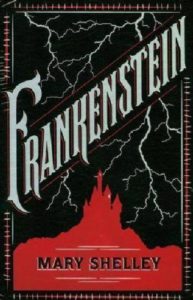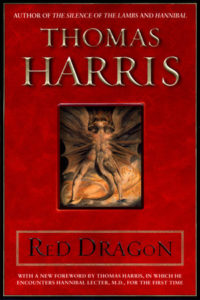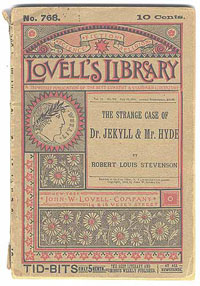To be stripped down, doped up, cut open, stitched shut—to be held in a cold room, waiting, waiting: such are the makings of a horror show. Or, you know, a trip to the doctor.
In many ways, medicine makes for an ideal device for suspenseful storytelling—impaired only, perhaps, by its degree of perfection. Crime fiction is so satisfying, in large part, because it offers a proxy for grappling with, and frequently resolving, our greatest fears. We can project our terror and disgust onto the criminal lurking in shadows on the page; and trailing the character who hides under the bed, we experience the threat of mortality and the desire to survive, followed by, ideally, a catharsis when the case is closed. Our discomfort is personified and, ultimately, purged by a thing far outside of ourselves.
With medicine, however, the danger slips under our skin. There is no murderer or monster standing in for the reaper, because the greatest threats—to our health and happiness, to life itself—have the potential to live inside of us: the mutated cell, the violent thought, the vanished memory and slippery slope. But if doctors are the intermediaries, capable of slaying monsters—what happens when the doctor is revealed to be a monster, too? The following characters are damaged, broken, and very sick. We need them in prison, confined to our imaginations. But in their worlds, they could probably have used a nice, long stay in a facility far removed from society at large.

JOHN (narrator’s husband) from The Yellow Wallpaper, by Charlotte Perkins Gilman
This exquisite and haunting story captures the claustrophobia and disorientation of a woman being kept, controlled, unseen, diminished, driven up the wall by the man of the house: her husband and doctor. Gilman knew a thing or two about the experience. In fact, she was prescribed the rest cure by the very same gynecologist who ordered Virginia Woolf’s rest cure, too. But both women learned that the trauma and fear associated with illness and (hopefully) recovery could be repurposed, to good use, in their work—even if the epiphany sparked by recovery lifts the doctor’s role closer to the gods. In her 1925 essay, On Being Ill, Virginia Woolf writes:
Considering how common illness is, how tremendous the spiritual change that it brings … how we go down into the pit of death and feel the waters of annihilation close above our heads and wake thinking to find ourselves in the presence of the angels … it becomes strange indeed that illness has not taken its place with love, battle, and jealousy among the prime themes in literature.

VICTOR FRANKENSTEIN from Frankenstein; or, the Modern Prometheus, by Mary Wollstonecraft Shelley
In fiction, as in reality, doctors guide us through, and sometimes into, the other side. They keep us from death or usher us there, transmuting the role of physician to that of the alchemist: as above, so below. But the alchemist plays with the dark arts, and the rules and boundaries and ethics of medicine—the frameworks meant to protect doctor and patient alike—lean hard against the ever-present call for scientific advancement.
Victor Frankenstein discovers the key to reanimation: the Philosopher’s Stone itself. It is hard to imagine a more thrilling career high, one that might have lifted him to saintly status, had his experiment worked as planned. As we know, however, things didn’t pan out. His disgust toward his own creation—his Prometheus drawn from cadavers—catapults his shame into destructive abandonment.

SIR WILLIAM GULL in From Hell, by Alan Moore (art by Eddie Campbell)
In Moore’s brilliant graphic novel, we’re asked to bend all we know about a serial killer we all know: Jack the Ripper. The details and research embedded in the conspiracy theory that unfolds are haunting, staggering, and so well done. If the infamously gruesome homicidal maniac was one and the same as a highly respected royal physician, then we must consider who we are trusting with our lives, and why.
The specifics are out of time and place, but the undercurrent is eerily relatable. To protect and care for ourselves, we put our faith in humans in white coats, trusting them to read our charts like crystal balls. We lay our bodies and minds bare, exposing our internal fears and failings—the pain or shame we carry inside of ourselves, the hidden source of is-this-normal?—and submit to a supremely imbalanced power dynamic, one in which patients must consent to an entirely unreciprocated vulnerability and intimacy. Rather than hiding under the bed in the dark, we lay on the table and show ourselves under fluorescent lights.

HANNIBAL LECTER from Red Dragon, The Silence of the Lambs, by Thomas Harris
Hannibal the Cannibal is skilled at many things—for example, infiltrating our nightmares. He is a legend on the page and in pop culture, thanks to Harris’s brilliant choice to balance depravity against refined taste and class. Lecter speaks beautifully, lives beautifully, and yes, eats his victims’ remains. But his threat to his victims’ minds is the first point of vulnerability—and the piece that keeps us up at night, shuddering at the thought of fava beans.
Lecter is a psychiatrist, not a surgeon, but the prospect of having one’s thoughts penetrated by this character is sufficiently disturbing. We can imagine ourselves trusting him, in his civilized life, in his office, in our naïveté. We do it all the time.
And yet, there is no rest for the weary. Even in a maximum security prison, Lecter is asked to keep his criminal mind sharp, rather than taking a break.

DR. HENRY JEKYLL from The Strange Case of Dr. Jekyll and Mr. Hyde, by Robert Lewis Stevenson
Maybe we ask too much of our doctors: to be skilled and brilliant, with gentle bedside manner, and also to be upstanding citizens, strong of heart, guided by an infallible moral compass. No one is perfect. Dr. Jekyll hosts darkness, as do we all, but he is unable to hold his darkness alongside the light.. He divides his identity into all good or all bad, a splitting (as with Borderline Personality Disorder) turned inward. His desire to suppress his shadow side is so colossal, so consuming, that it all but ensures Hyde’s vitality.
For Jekyll, Hyde is the embodiment of Poe’s “Imp of the Perverse”—the backlash of an all-consuming desire to snuff out our ugliest impulses, thoughts, or desires. There is no intermediary between id and superego, no integration of his shadow side. He terrifies himself. And yet, as Settembrini tells rest-cure devotee Hans Castorp, in and on The Magic Mountain: “Fear and euphoria aren’t mutually exclusive.”

BLACK JACK from Black Jack (17 volumes), by Osama Tezuka
Osamu Tezuka’s gorgeous manga series about a vigilante surgeon who measures the value of a life on a sliding scale of morality, asks us to question our own worth. Tezuka was, himself, a physician before he pivoted toward AstroBoy, but he did not bury his doctor side. In fact, he cleverly draws himself into the story, quite literally, from time to time—popping into a panel to state a medical fact or two.
Black Jack cuts a fierce silhouette, what with his shock of white hair, his cape with the popped collar, his patchwork face—the latter being the result of skin grafts he received as a child after very nearly dying in a horrifying explosion that killed his mother. This trauma drives his every move, and the pain simmering under his skin and his decisions to save or end lives is palpable and terribly entertaining.




















